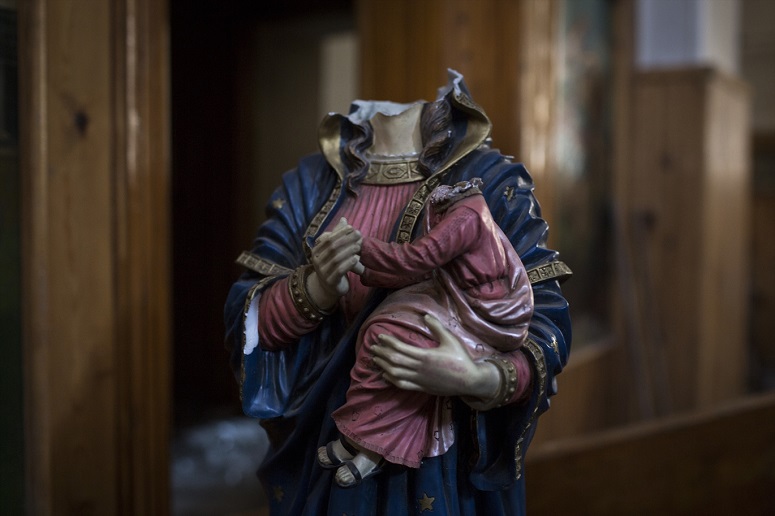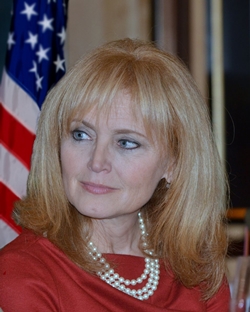
Freedom of religion and belief is an issue “whose time has come”, the vice chairwoman of the U.S. Commission on International Religious Freedom said yesterday.
During the presentation of two reports on religious freedom at the European Parliament in Brussels on Feb. 12, commission Vice Chairwoman Katrina Lantos Swett said that the prominence of the issue was highlighted by President Barack Obama’s decision to choose it as the focus of his speech at the recent annual Prayer Breakfast in Washington.
The UN’s Special Rapporteur on Freedom of Religion or Belief, Heiner Bielefeldt, agreed that there is an “increasing interest” in the subject, although he said it is often connected with a “certain degree of suspicion” and is “perhaps the only right to freedom which sometimes triggers mixed emotions”.
Speaking to World Watch Monitor following the presentation of the two reports, Bielefeldt said that life for Christians has “deteriorated in a number of countries” in recent years, and highlighted some prominent examples.
“We have, unfortunately, seen a deterioration of the situation for Christians in a number of countries, particularly in the Middle East,” he said. “Obvious examples include Egypt, Syria and Iraq.”
Bielefeldt said all minorities, not only Christians, are at risk as the Syrian civil war continues.
“The extremely volatile situation in Syria includes increased risks for minorities in general,” he said. “Everyone is affected by the instability, it’s not something that exclusively targets Christians, but usually minorities are at disproportionate risk of ending up between the big fighting camps.”
In Egypt, Bielefeldt said that discrimination against Christians that existed before the Arab Spring has worsened. “During the Arab Spring we saw very promising signs of a new cooperation between various groups, but now authoritarian regimes have taken over and the situation has worsened there, certainly,” he said.
However, Bielefeldt said it would be wrong to perceive that all Muslims and Christians within the country are opposed to each other. “Sometimes you get the impression from some headlines that it’s perceived like that, but it’s not that Muslims in general persecute Christians in general,” he said. “Muslims are also fighting with Muslims, fighting about the role of religion in public life and Sharia.”

The rapporteur added that there has been “no meaningful change” on freedom of religion in Iran, despite the optimism surrounding last year’s regime change. “So far, nothing has materialised,” he said. “You still have laws discriminating against Christians. In most constitutions you see freedom of religion as a guarantee which is surrounded by lots of caveats, but in Iran you don’t have freedom of religion even in theory.”
Bielefeldt said that for Christians in Iran of Armenian heritage, it is usually possible to “live and breathe”, providing they don’t attempt to spread their message. However, he said Protestant and Evangelical groups are treated with a “high degree” of suspicion. “[Protestants] are simply associated with America and perceived as doing missionary work,” he said, “which by the way is covered by freedom or religion and belief, but this is not welcome at all in the country.”
The European Parliament Working Group on Freedom of Religion or Belief was presenting its first annual report, noting an increase in violations of religious freedom around the globe and recommending EU action within 15 countries (China, Egypt, Eritrea, India, Iran, Iraq, North Korea, Libya, Mali, Nigeria, Pakistan, Saudi Arabia, Syria, Tunisia, and Uzbekistan), which were labelled “serious violators”.
Peter van Dalen, a member of the European Parliament, said: “Today is a sad day, as right now many millions of people are bullied, discriminated, persecuted and even killed for their faith. I hope that our work may contribute towards improving this situation.”
The United States Commission on International Religious Freedom also presented its annual report, in which 15 nations (China, Eritrea, Iran, Myanmar, North Korea, Saudi Arabia, Sudan and Uzbekistan, Egypt, Iraq, Nigeria, Pakistan Tajikistan, Turkmenistan, and Vietnam) are designated as “countries of particular concern”.